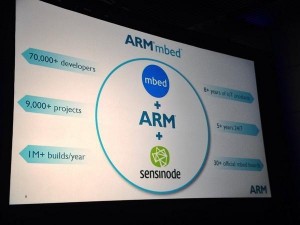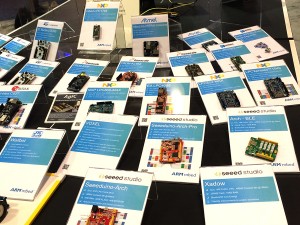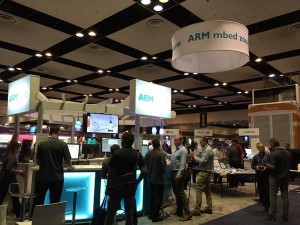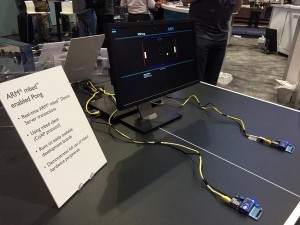At ARM TechCon in Santa Clara last week, it was evident that the Internet of Things’ enormous potential understandably fuels the Internet of Things’ enormous hype. Still, IoT is “…growing slower than expected” and ARM apparently plans to jump-start growth with the mbed operating system (mbed OS) for low-power, embedded IoT devices.
The full-stack OS, designed for ARM Cortex-M-based MCUs, is low-power by design with built-in security, connectivity, and management designed to reduce the complexity developers face when integrating devices, tools, and servers for the cloud.
The challenge, said mbed OS lead architect Hugo Vincent, is that while a lot of IoT devices are embedded, they have different requirements and goals, as well as strict energy and resource restraints. This is mostly unfamiliar territory for many embedded developers and the tens of millions on non-embedded developers now engaged in IoT development. And, even with good embedded developers, embedded software is expensive and slow-to-market.
Power management is important (think 10 years on one coin cell battery) but difficult, and hardware often consumes energy in non-obvious ways (again, 10 years…one coin cell). Connectivity introduces security concerns as previously isolated devices are now vulnerable to remote attack, data leaks, and denial of service. These are the challenges ARM hopes to solve with the mbed production-grade MCU OS.
The operating system supports nearly 70 standards covering connectivity, security, object models, and application protocols. ARM also announced an expanded IoT ecosystem of gateway manufacturers, system integrators, cloud service providers, operators, and module makers. You can download the free software and learn about the mbed Device Server and mbed Tools at embed.org.
The ARM mbed Zone featured a wide variety of applications running mbed OS from Alcatel-Lucent’s demonstration of a Lightweight M2M (LWM2M) message routing technology to a game of Pong…




Honestly, I don’t really know much about ARM and its mbed OS. But based on what you mentioned that it is designed to reduce energy consumption (low power energy), I feel that this surely is something that would benefit the IT industry and business in general. Not only would companies be able to save on energy costs, they also would be able to maximize the features of this operating system. I will be reading more about ARM and mbed OS for additional learning. Thanks.